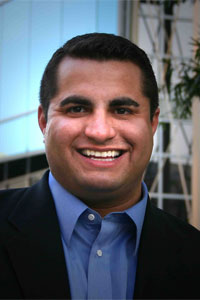
Christopher Delporte
Group Editor, Medical Product Outsourcing, Orthopedic Design & Technology
An award-winning journalist, Christopher Delporte has 15 years of reporting and journalism experience, with 10 years in the healthcare and medical technology sectors. In July 2006, he was named group editor for Medical Product Outsourcing and Orthopedic Design & Technology magazines. Prior to heading the editorial departments for MPO and ODT, Delporte was director of communications and member relations for the Medical Device Manufacturers Assn. and Washington editor for Thomson/BioWorld’s Medical Device Daily. Delporte earned his Bachelor of Arts in journalism from the University of North Carolina at Chapel Hill.
There seems to be a lot of "wait-and-see" going on in the medical device sector — it was a year of adjustment. Financially, things have been improving compared to the last year and a half, two years — but there’s too much that remains up in the air. From an industry that always seemed to push forward at full-steam-ahead, we’re now seeing cautious, smaller steps. As one analyst said to me recently, there are too many unknowns in the picture.
Take the device tax: Will the industry come face-to-face with it in its current form in 2013, or will a new Congress have its say? Or how will new healthcare realities affect medtech? And, by the way, ore Republican control of the House and Senate may not be the cure-all that the medtech business community hopes it might be.
MassDevice New Year’s Special P/review
- P/review: Introduction
- P/review: Paul LaViolette
- P/review: Stephen Ubl
- P/review: David Lucchino
- P/review: Euan Thomson
- P/review: Brian DeChristopher
- P/review: Christopher Delporte
- P/review: Don Hardison
- P/review: Brent Hudson
- P/review: Hamid Tatabaie
- P/review: Patrick Dentinger
- P/review: Nancy Briefs
- P/review: Brian Concannon
- P/review: Ryan Howard
- P/review: Ed Berger
- P/review: Top stories of 2010
For better or worse, we’ve kicked the 510(k) issue up and down the schoolyard. Whether the program will be better off after reform remains to be seen. In the meantime, despite all the FDA’s recent introspection, there’s still uncertainty. The bottom line seems to be that companies are re-assessing their businesses and finding ways to rein in costs and operate according to new rules that are not well-defined. Firms are afraid that their ability to innovate or bring new products in the U.S. will be stifled. We have to be very careful that the device industry doesn’t lose its competitive edge with the rest of the world.
A more stringent FDA means that the manufacturing relationships between medical device companies and OEMs will come under closer scrutiny. If the FDA isn’t at suppliers’ doorsteps, you can believe that OEMs are auditing frequently. That said, there’s tremendous opportunity present for suppliers to help medical device companies reduce costs. OEMs want to tighten their supplier lists. So outsourcing or contract manufacturing firms that offer a more robust menu of services will be in a better position to compete — not just in component manufacturing or assembly, but in design, R&D and other high-value areas along the supply chain.
As medical device firms look to do more with less and take costs out of the process, the push to make the most out of margins will shape the outsourcing and supplier relationship with medical device firms more than it has in the past.

